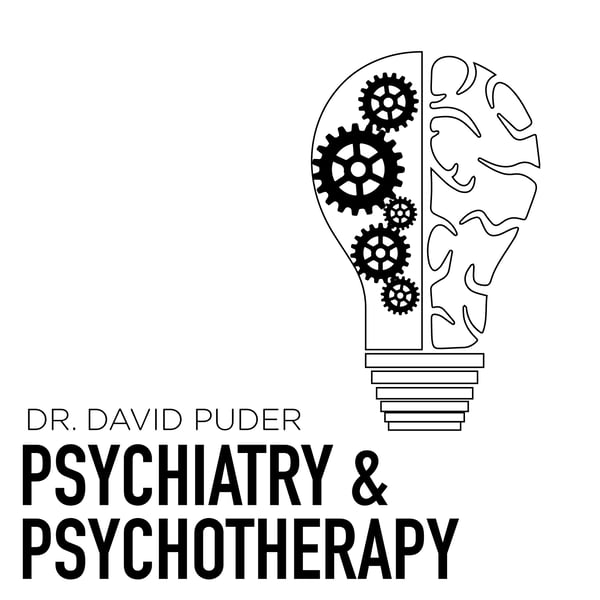5 Factors and Domains of Psychiatric Care
Psychiatry & Psychotherapy Podcast
David J Puder
4.8 • 1.3K Ratings
🗓️ 8 March 2024
⏱️ 100 minutes
🧾️ Download transcript
Summary
In this Episode, Dr. David Puder, Dr. Adam Borecky, and Joanie Burns discuss the 5-factor approach to holistic, patient-centered psychiatric care. This approach takes into account that each individual who seeks care is unique in their physiological and psychological make-up and that multiple factors influence both physical and mental health (for better or worse).
The 5-factor approach to treatment is based on the importance of sensorium and its pivotal role in regulating thoughts, feelings, and overall mental health. Sensorium is a lens to understand how we focus on various things. Sensorium is total brain function, which fluctuates throughout the day and depends on a number of factors, including sleep, stress levels, and more.
Transcript
Click on a timestamp to play from that location
| 0:00.0 | All right, welcome back to the podcast. I am joined today with Joni Burns, Dr. Joni Burns, |
| 0:19.5 | a nurse practitioner, psychiatric nurse practitioner, who has been in private practice for five years. |
| 0:25.4 | She was coached by me for two and a half years and then came on my team |
| 0:31.6 | and sees patients in Florida and California. Joining with me as well is Adam Brecky. He is a |
| 0:38.6 | psychiatrist in private practice in my group in California and does tele-psychiatry and |
| 0:46.4 | tele-therapy. And so, yeah, welcome to the podcast. Thank you. And we are going to be going through |
| 0:55.0 | the five factors and domains of psychiatric care. So this is a holistic patient-centered |
| 1:02.5 | psychiatric care approach that we have spoken about in pieces throughout the podcast. |
| 1:09.8 | And Joni and I largely, largely Joni has worked on this handout, which will cite everything |
| 1:16.6 | that we're going to talk about today. And me and Joni meet once a week and I have been looking |
| 1:22.4 | at this with her for about a year, I would say, as we, you know, I get busy with everything else and |
| 1:30.0 | then we just would find one little piece of something we would want to add. So, briefly, |
| 1:36.5 | just to give you an idea of what we're going to talk about today, we're going to talk about |
| 1:40.4 | the five facets of good psychiatric care, including therapy, sleep, activity, |
| 1:49.0 | aka exercise, number four is nutrition, and number five is medication, |
| 1:54.7 | and the role of medication in the overall approach. So, Joni, tell me what gets you excited about |
| 2:02.9 | this approach in particular? Well, this is something I'm very passionate about and not only |
| 2:09.2 | try to share with colleagues, but also with patients in that there's not a singular approach |
| 2:15.8 | to psychiatric care. And we're looking at the whole body, the whole person when we're providing care. |
| 2:21.9 | And you know, medications is just a small piece of that, even if it may not even be appropriate |
| 2:28.4 | for some patients. So, let's find the specific pieces, specific tools for each patient, |
| 2:34.4 | what can we find to and and tweak to make their overall well-being better? |
... |
Transcript will be available on the free plan in -387 days. Upgrade to see the full transcript now.
Disclaimer: The podcast and artwork embedded on this page are from David J Puder, and are the property of its owner and not affiliated with or endorsed by Tapesearch.
Generated transcripts are the property of David J Puder and are distributed freely under the Fair Use doctrine. Transcripts generated by Tapesearch are not guaranteed to be accurate.
Copyright © Tapesearch 2025.

